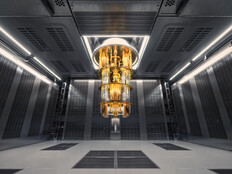Can Electric Cars Become a Mainstream Reality?
Experts point to any number of factors — such as affordable prices, extended battery range or openness to new technology — as important factors to consumer acceptance of electric vehicles.
Colin Read, ECOtality vice president of corporate development, believes a reliable infrastructure network that will limit “range anxiety” is vital to making EVs a mainstream reality. That’s where the company’s Level-3 charger comes in.
Called the Blink DC Fast Charger, the 440-volt charger has recently been certified as compliant with both the Underwriters Laboratories (UL) and the Japanese CHAdeMO charging standards. ECOtality plans to install the Level-3 chargers in the same states (Arizona, California, Oregon, Tennessee, Texas, Washington and Washington, D.C.) in which it is building its Level-2 chargers.
1891
The year William Morrison of Des Moines, Iowa, built the first four-wheel electric automobile in the United States.
SOURCE: AccessScience, online version of the McGraw-Hill Encyclopedia of Science & Technology
The fast chargers will address concerns about driving range. Because the fast chargers can provide an 80 percent charge in about 15 minutes and a full charge in 25 minutes, EV drivers will no longer be limited to Level-2 charging times of between four and eight hours, Read says. ECOtality describes the fast charger as ideal for high-traffic commercial locations, transportation corridors and fueling stations.
“DC fast chargers may be a solution for a lot of users who will not have access to a home or workplace charger, and will be critical for long-range trips,” Read says.
For more on green technology and ECOtality's initiative with electric cars, read the full feature on the company in the BizTech article "ECOtality Pioneers Chargers for Electric Cars."







